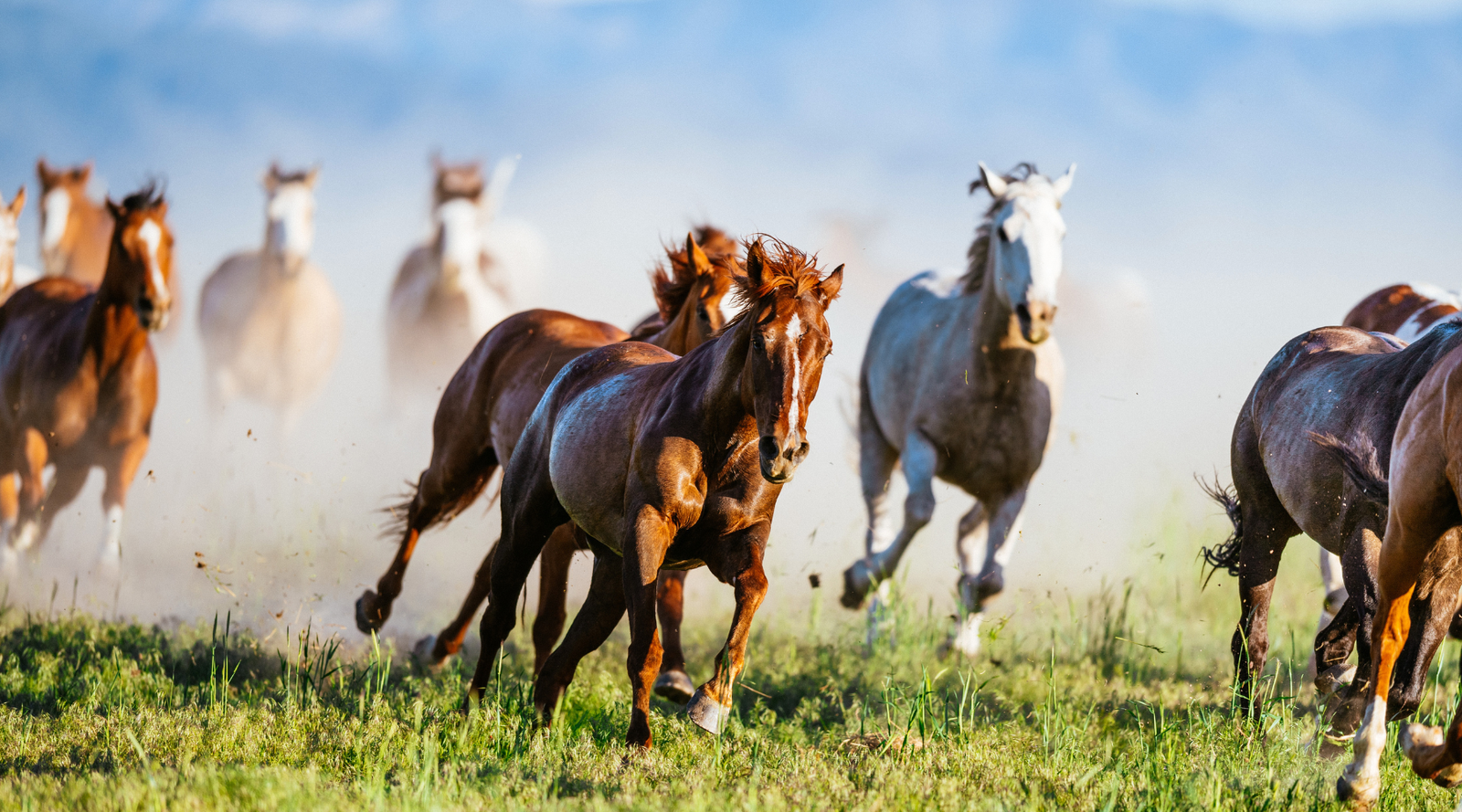20 Interesting Facts About Elephants: Nature's Gentle Giants
Elephants (Elephantidae) have always fascinated humans with their grandeur and grace. But beyond their sheer size and trunk-wielding prowess, elephants are brimming with quirks and characteristics that make them even more endearing. So, Let's delve into some of the most interesting, amusing, and downright surprising facts about these gentle giants.

1. Elephants Have a Built-in Cooling System
Imagine carrying around 200 pounds of ears! Elephants' large ears are not just for flapping adorably; they serve as a natural cooling system. The large surface area of their ears is filled with blood vessels, which help to dissipate heat and regulate their body temperature. It's like having a personal air conditioner attached to your head.
2. The Trunk: Multi-tool Extraordinaire
An elephant's trunk is an incredible appendage, akin to having a Swiss Army knife for a nose. With over 40,000 muscles (compared to the measly 600 in the human body), the trunk can perform tasks ranging from lifting heavy logs to picking up a single blade of grass. Elephants use their trunks for drinking, breathing, smelling, touching, and even trumpeting (their version of a loudspeaker). Talk about multifunctionality!

3. Jumbo Memory Banks
The phrase "an elephant never forgets" has some truth to it. Elephants have excellent memories, which play a crucial role in their survival. They can remember the locations of water sources, even those hundreds of miles apart, and recognize and remember individual humans and other elephants for many years. This ability helps them navigate their expansive habitats and maintain social bonds.
4. Social Savvy and Empathy
Elephants are highly social creatures with complex social structures. They live in matriarchal family groups, where the oldest female leads the herd. These intelligent animals exhibit behaviors that suggest deep emotional intelligence. They comfort distressed members, show empathy, and even mourn their dead. Witnessing elephants gently touching and caressing a deceased companion is heartwarming and heart-wrenching.

5. The Diet of a Giant
To sustain their massive bodies, elephants must consume a lot of food—about 300 pounds daily! They spend up to 16 hours daily eating and munching on grass, leaves, bark, and fruit. With their large appetites, elephants play a crucial role in their ecosystems by helping to shape the environment. Their feeding habits help clear vegetation, promote new growth, and maintain the balance of their habitats.
6. Elephants and Their Mud Baths
Elephants love a good mud bath. It's not just for fun, though it certainly looks like they're having a blast. Mud baths help protect their skin from the sun, keep insects at bay, and cool them down. After a refreshing roll in the mud, elephants often dust themselves with dirt for an extra layer of protection. Think of it as their version of SPF 50.

7. Communication: Beyond Trumpeting
Elephants have a rich communication system, including vocalizations, body language, and seismic signals. They produce a range of sounds, from low-frequency rumbles to high-pitched squeaks. These sounds can travel long distances, allowing elephants to communicate with others miles away. They also use their feet to detect vibrations in the ground, which can signal danger or the approach of other elephants.
8. Pregnancy: The Long Haul
Elephants have the most prolonged pregnancy of any land animal—almost 22 months! This extended gestation period ensures that the calf is well-developed at birth and ready to take on the world. Newborn elephants are adorable, weighing around 200 pounds and about 3 feet tall. Despite their size, baby elephants are incredibly vulnerable and rely on the herd for protection and guidance.

9. Elephants and Water: A Love Story
Elephants are avid swimmers and enjoy spending time in the water. They use their trunks as snorkels, allowing them to stay submerged for long periods. Swimming not only helps them to cool off but also provides a form of low-impact exercise. Watching a herd of elephants splash and play in the water is a sight that captures their joyful and carefree nature.
10. Elephants: Architects of the Ecosystem
Elephants are often referred to as "ecosystem engineers" because of their significant impact on their environment. Their movements and feeding habits help to shape the landscape. For example, their ability to create water holes by digging in dry riverbeds provides essential resources for other wildlife. Additionally, their dung disperses seeds far and wide, promoting plant diversity and growth.

11. The Matriarch: The Wise Leader
In elephant societies, the matriarch is the leader and the most experienced herd member. Her wisdom and knowledge, accumulated over decades, are crucial for the group's survival. She knows where to find water during droughts, how to avoid dangers, and how to ensure the social cohesion of the herd. Her leadership is respected and followed by all members of the group.
12. Tusks: Tools and Weapons
Elephants' tusks are elongated incisor teeth that grow throughout their lives. These impressive tusks are used for digging, stripping bark from trees, and even as weapons during conflicts. Unfortunately, tusks also make elephants targets for poaching, which has led to a significant decline in their populations. Conservation efforts are ongoing to protect these majestic creatures from extinction.

13. The Legacy of the Woolly Mammoth
Elephants share a common ancestor with the now-extinct woolly mammoths. Studying the DNA and fossils of mammoths has provided valuable insights into the evolution of modern elephants. While mammoths roamed the Earth during the Ice Age, today's elephants carry on their legacy, reminding us of the incredible history of these magnificent giants.
14. Intelligence and Problem-Solving
Elephants are known for their intelligence and problem-solving abilities. They have been observed using tools like branches to swat flies or leaves to scratch themselves. In captivity, elephants have been seen unlocking gates and working together to solve complex tasks. Their cognitive abilities are a testament to their advanced brains and social learning.

15. Elephants and Art
Believe it or not, some elephants have shown an ability to paint! With some training, elephants can use their trunks to hold paintbrushes and create abstract artwork. While the ethics of this practice are up for debate, the fact that elephants can learn to paint demonstrates their remarkable dexterity and cognitive skills.
16. Elephants in Culture and Mythology
Throughout history, elephants have held significant cultural and symbolic meanings in many societies. In Hinduism, the elephant-headed god Ganesha is revered as the remover of obstacles and the god of beginnings. In African cultures, elephants are often seen as symbols of strength, wisdom, and loyalty. These cultural connections highlight the deep respect and admiration humans have for elephants.

17. The Plight of Elephants
Despite their awe-inspiring nature, elephants face numerous threats, including habitat loss, human-wildlife conflict, and poaching. Organizations worldwide are dedicated to conserving elephant populations and protecting their habitats. Efforts include anti-poaching initiatives, habitat restoration, and raising awareness about the importance of these keystone species, including via World Elephant Day.
18. Elephants: Champions of Cooperation
In elephant societies, cooperation and teamwork are essential. Herd members work together to protect and nurture the young, find food, and defend against predators. This cooperative behavior extends to interactions with other species as well. For example, elephants have been known to help other animals in distress, showcasing their charitable nature.

19. The Future of Elephants
The future of elephants depends on our efforts to protect them and their habitats. By supporting conservation programs, reducing human-elephant conflicts, and promoting sustainable practices, we can ensure these magnificent creatures continue to thrive. Every small action contributes to a larger movement to preserve the wonders of the natural world.
20. Why Elephants Matter
Elephants play a crucial role in maintaining the health and balance of their ecosystems. Their presence influences the availability of resources for other species, and their movements help shape the environment. Protecting elephants means preserving biodiversity and ensuring the natural world's resilience for future generations.

So there you have it—elephants, in all their glory, are more than just big, grey giants. They are complex, intelligent, and essential to the ecosystems they inhabit. Next time you see an elephant, whether in the wild or on a nature documentary, take a moment to appreciate the incredible creatures they are. And remember, every small action we take to protect them makes a big difference.
Feel inspired to help elephants? Check out this blog post on why elephants are a keystone species to learn more about their crucial role in the ecosystem and how you can help.
For more exciting animal facts and how you can make a difference, stay tuned to our blog and join the conversation with #WearYourBecause.
















Carl Lucci
October 09, 2025
Great information on my "most"favorite and valuable mammals on the Planet.
Elephants have been a pleasant part of my life for 75 years.
Thank You very much, Carl